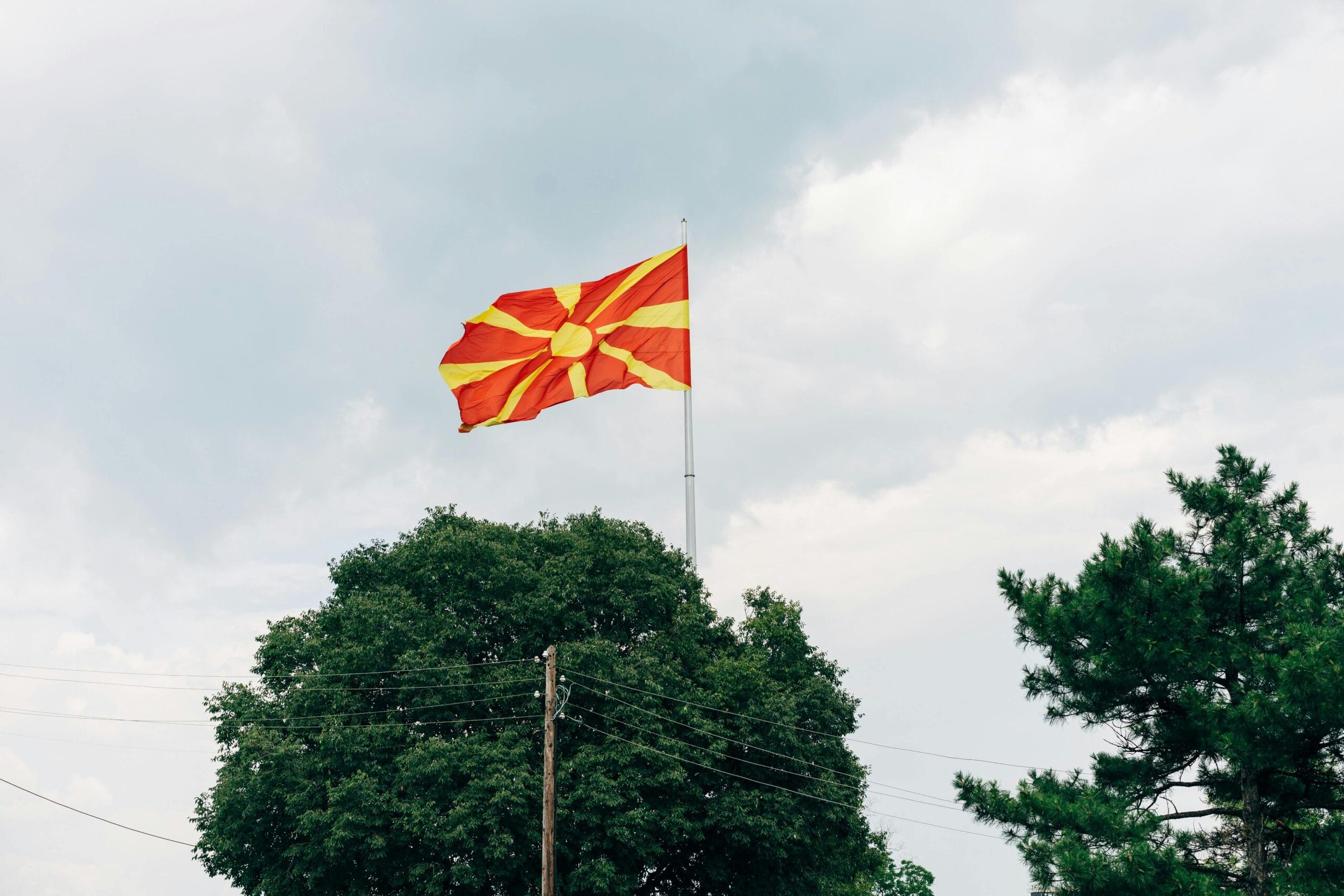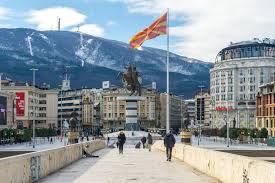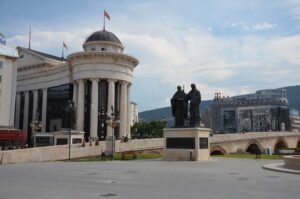Local elections were held in North Macedonia on 19 October 2025, with citizens electing mayors and municipal councils in 80 municipalities, including the City of Skopje. These were the first local elections since the 2024 parliamentary vote, which brought the VMRO‑DPMNE-led “Your Macedonia” coalition to power nationally. The elections were widely viewed as a test of the ruling party’s local reach and of the opposition’s ability to recover following its national defeat.
Turnout stood at approximately 47 %, marking the lowest level in the country’s history of local elections. In three municipalities the turnout fell below the one-third threshold, requiring repeat first-round voting.
The low participation could be attributed to a widespread lack of trust in political parties and growing voter apathy, with many citizens expressing disappointment with the political establishment as a whole.
According to the OSCE/ODIHR’s preliminary statement, the elections were competitive and well-administered but continued to reveal systemic weaknesses in campaign-finance oversight, political polarization, and institutional interference in multiple spheres of public life.
Campaign and issues
Although municipal elections traditionally focus on local governance and community needs, this campaign was largely dominated by national narratives. The ruling VMRO-DPMNE positioned itself as the guarantor of stability and national pride, campaigning under a message that combined patriotism, sovereignty, and anti-corruption rhetoric. Its leaders frequently invoked themes of protecting national interests against perceived external pressures, particularly in relation to EU accession talks and ongoing tensions with Bulgaria.
The opposition SDSM (Social Democratic Union of Macedonia) sought to highlight social justice, decentralisation, and transparency, calling for improvements in living standards and local services. However, the party struggled to mobilise voters amid widespread dissatisfaction with the economy and governance. Many citizens expressed frustration with both main parties, contributing to the record-low turnout.
VMRO-DPMNE’s campaign strategy was highly organised, with strong fieldwork and local presence across the regions. The party relied on direct engagement with voters and effectively leveraged its network of loyal voters and local branches. This approach helped secure support even in areas where previous VMRO mayors had underperformed. In contrast, SDSM lacked a coherent message capable of inspiring its traditional voter base, despite maintaining a competent local structure in several municipalities.
While media coverage during the campaign was assessed as largely balanced, public debate focused heavily on national identity and sovereignty, rather than municipal policy issues. The decline in enthusiasm for EU membership, fuelled by frustration over prolonged accession delays and perceptions of unfair treatment by the EU, was also visible in the rhetoric of several parties. VMRO-DPMNE publicly reaffirmed its support for the EU path but simultaneously promoted narratives emphasising national independence and resistance to external conditions, appealing to nationalist sentiments.
Results
Results show a clear victory for VMRO-DPMNE and its coalition partners, who won 33 municipalities outright and lead in around 30 more heading to run-offs on 2 November.
The SDSM secured three mayoralties in the first round and remains competitive in several municipalities going into the second round. In Albanian-majority areas, the Vlen (It’s Worth it) coalition and the DUI (Democratic Union for Integration) maintained their dominance, with several races proceeding to a run-off.
A notable surprise came in Skopje, where the party Levica advanced to the second round. While its name means “The Left,” the party is described as a far-left nationalist, eurosceptic formation, often adopting national-populist rhetoric rather than classic social-democratic policy.
Its presence in the run-off signals a fragmentation of the urban electorate and the growing appeal of anti-establishment messages.
VMRO-DPMNE’s success reflected both its organisational capacity and its ability to mobilise a stable core electorate of roughly 300,000 loyal voters. Although the party has lost some support since previous cycles, it remains the dominant political force in local governance. Its strong regional structures and extensive campaigning at the local level enabled it to outperform rivals even in areas with mixed or opposition-leaning electorates.
For SDSM, the results mark a setback, though not a total collapse. The party remains competitive in some municipalities heading to the run-offs, particularly in the south and east, but faces the need to redefine its message and rebuild credibility as a progressive, social-democratic alternative focused on citizens’ daily concerns rather than nationalistic narratives.
Outlook
The run-offs on 2 November will be decisive in shaping the local political map. In Skopje, the race between VMRO-DPMNE and Levica will test whether opposition parties can consolidate votes in competitive municipalities, or whether fragmentation will further entrench VMRO’s control.
Looking ahead, the elections underline VMRO-DPMNE’s capacity to dominate the local political landscape, but also expose the depth of voter disillusionment. Many citizens remain critical of corruption, weak institutions, and the gap between political promises and tangible improvements in living standards.
While VMRO-DPMNE formally maintains its pro-EU stance, questions remain about whether its leadership will advance meaningful reforms required for accession, citing entrenched patronage networks and reluctance to limit political control over institutions. The continued use of nationalist rhetoric may strengthen short-term legitimacy but risks further distancing North Macedonia from the European path.
For SDSM, these elections represent a critical juncture. The party will need to reassert its social-democratic identity, focusing on transparent governance, social equality, and the rule of law. Looking ahead to the national elections in 2028 it is important for SDSM to rebuild public trust and offering a credible vision for a more inclusive and European North Macedonia.
Overall, the 2025 local elections demonstrate both the strength of established political networks and the fragility of democratic engagement. The coming months, as well as the run-off elections, will show whether the opposition can regroup and whether the governing party will translate its local dominance into genuine reform, or continue the pattern of centralised control and political polarisation that has defined recent years.
Written by Elene Amiranashvili



